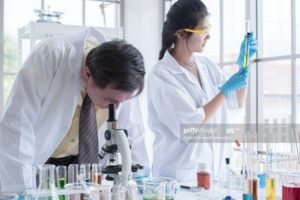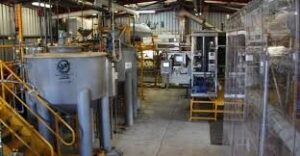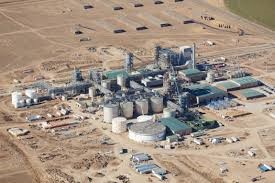Federal Programs and Resources Available to Support the Bioeconomy
Federal Programs and Resources Available to Support the Bioeconomy
By Bill Hagy, LEC Partners, Inc.
A series of PowerPoint Presentations outlining key Federal Financial Programs and Assistance that are available to support the domestic bioeconomy have been provided. This was not intended to be an” all inclusive” listing of federal programs/resources available. The PowerPoints were divided into the three primary phases of domestic project development – Research and Development; PRE-Commercial/Demonstration Scale; and Commercial Scale. The programs and resources that have been identified are unique in the types of projects/ purposes that are eligible. Some of the programs/resources have limitations such as:
- types of innovative technology
- types of eligible applicants
- assistance limited to rural areas
- assistance limited to size of business applicant
- assistance application windows limited to certain times of the year
- assistance limited to certain amounts per application/project
RESEARCH AND DEVELOPMENT
Research and Development (R&D) includes any activity associated with creating new innovations in existing products, services, or procedures or the discovery of new innovations that lead to the creation of new products. This would include the development of a pilot scale facility. Certain R&D programs and resources limit the assistance to specific purposes/topics and applicants.
Depending on the Federal Programs and Resources, assistance is provided in various forms including grants, cooperative agreements and partnership agreements.

Small Business Innovation Research (SBIR) Program
There are eleven Federal agencies who participate in the SBIR program. The mission of the SBIR program is to support scientific excellence and technological innovation through the investment of Federal research funds in the form of grants in critical American priorities to build a strong national economy. The program’s goals are four-fold:
- Stimulate technological innovation
- Meet Federal research and development needs
- Foster and encourage participation in innovation and entrepreneurship by women and socially or economically disadvantaged persons
- Increase private-sector commercialization of innovations derived from Federal research and development funding
Each of the eleven agencies individually issue request for applications that outline application procedures, timeframes for applying, and priority/topic areas of interest. https://www.sbir.gov/about/about-sbir.
Small Business Technology Transfer (STTR) Program
The Small Business Technology Transfer (STTR) is another program that expands funding opportunities in the federal innovation research and development (R&D) arena. Central to the program is expansion of the public/private sector partnership to include joint venture opportunities for small businesses and nonprofit research institutions. The unique feature of the STTR program is the requirement for the small business to formally collaborate with a research institution in Phase I and Phase II. STTR’s most important role is to bridge the gap between performance of basic science and commercialization of resulting innovations.
The programs’ goals are to:
- Stimulate technological innovation
- Foster technology transfer through cooperative R&D between small businesses and research institutions
- Increase private sector commercialization of innovations derived from federal R&D
There are five federal agencies that participate in this program. Each agency individually issues request for applications that outlines application procedures, timeframes for applying, and priority/topic areas of interest. https://www.sbir.gov/about/about-sttr.
USDA Agriculture Research Service (ARS) Office of Technology Transfer (OTT)
OTT works with ARS scientists to ensure their research has the maximum impact on the U.S. agricultural community. ARS scientists form research partnerships with university and industrial researchers, actively markets ARS technology, seeks intellectual property protection for ARS inventions when such protection will enhance technology transfer, and licenses ARS intellectual property to companies interested in commercialization. https://www.ars.usda.gov/plains-area/docs/technology-transfer/#LicensingInfo.
DOE National Laboratories and Technology Centers
The DOE National Laboratories and Technology Centers are a system of facilities and laboratories overseen by the United States Department of Energy for the purpose of advancing science and technology to fulfill the DOE mission. The National Labs’ unique ability to partner with private industry and academia— through research agreements, national user facilities, and technology transfer programs—drives technology solutions to the marketplace, creates jobs, and spurs economic growth and supports energy security and independence.
https://nationallabs.org/site/wp-content/uploads/2017/05/National-Labs-all-r.pdf.
USDA and DOE Biomass Research and Development Initiative (BRDI) Program
BRDI is a grant funded program administered jointly by DOE and USDA. The research and development technical areas the BRDI Initiative supports are:
- feedstock development
- biofuels and biobased products development
- biofuels development analysis.
Funding Availability is announced through a Request for Applications published in the Federal Register. https://biomassboard.gov/initiative/initiative.html.
PRE-COMMERCIAL/DEMONSTRATION SCALE DEVELOPMENT
This phase includes the construction of demonstration plant/facility to validate an industrial process for commercialization. Demonstration plants are used to prove a process will work at industrial scale and is financially viable for the intended industry. These plants/facilities produce sufficient quantities of the off-take product for determining the viability of the off-take for commercial scale production.
In the past this phase of development known to some as the “Valley of Death” has resulted in numerous innovative technologies /concepts not being able to progress to the commercial scale phase due to lack of financial resources to support the development of the demonstration plan/facility.
Several federal programs depending on the type of innovative technology /concept can provide financial assistance in the form of grants, seed capital, and other forms of technical assistance including cooperative agreements, partnerships, and utilization of federal owned facilities. These programs, along with other private sector funding, contribute to the potential success of an innovative technology/concept successfully graduating from this phase of development.
USDA and DOE Biomass Research and Development Initiative (BRDI) Program
This program as described above in the Research and Development section can provide grant funds for demonstration scale projects. See above for eligible purposes funding availability information.
National Science Foundation I-Corp Program (ICAP)
The purpose of the NSF I-Corps program is to identify NSF-funded researchers who will receive additional support – in the form of mentoring and funding – to accelerate the translation of knowledge derived from fundamental research into emerging products and services that can attract subsequent third-party funding.
The purpose of the NSF I-Corps grant is to give the project team access to resources to help determine the readiness to transition technology developed by previously-funded or currently-funded NSF projects. The outcome of the I-Corps projects will be threefold:
- a clear go/no go decision regarding viability of products and services
- should the decision be to move the effort forward, a transition plan to do so
- a technology demonstration for potential partners.
Numerous funding opportunities are available depending on the nature of the project: https://www.nsf.gov/funding/pgm_list.jsp?ord=date&org=NSF&sel_org=BIO&status=1.
DOE Advanced Research Projects Agency- Energy (ARPA-E) Seed Funding
ARPA-E advances high-potential, high-impact energy technologies that are too early for private-sector investment. ARPA-E awardees are unique because they are developing entirely new ways to generate, store, and use energy. ARPA-E empowers America’s energy researchers with funding, technical assistance, and market readiness.
ARPA-E issues periodic Funding Opportunity Announcements (FOAs), which are focused on overcoming specific technical barriers around a specific energy area. ARPA-E also issues periodic OPEN FOAs to identify high-potential projects that address the full range of energy-related technologies, as well as funding solicitations aimed at supporting America’s small business innovators. https://arpa-e-foa.energy.gov/.
USDA Agriculture Research Service (ARS)Advanced Bioenergy and Bioproducts Interagency Reimbursement Agreement
ARS research is organized into National Programs. These programs serve to bring coordination, communication, and empowerment to approximately 690 research projects carried out by ARS. The National Programs focus on the relevance, impact, and quality of ARS research. https://www.ars.usda.gov/research/programs-projects/?modeCode=30-12-30-00.
The Bioenergy Research Unit (BER) conducts a broad-based program of microbial, biochemical, genetic, and fermentation engineering research that is international in scope and importance addressing national research needs for new environmentally acceptable agricultural practices and value-added products. The overall mission of the BER research program is to develop bioproducts and bioprocesses for conversion of agricultural commodities into biofuels and chemicals, enzymes, and polymers.
There are a variety of agreements and tools that enable Federal agencies to cooperate with other Federal and non-Federal entities, including industrial for-profit organizations. They also enable the protection, where necessary, of new knowledge and scientific/technical information from public disclosure, including the intellectual property interests of collaborating parties.
Federal agencies may use technology transfer agreements to share, exchange, transfer, obtain and/or use, information, expertise, facilities, and materials with other entities. Such agreements include:
- Cooperative Research and Development Agreement (CRADA)
- Facility Use/Service Agreement (FUSA)
- License Agreement (LA)
- Material Transfer Agreement (MTA)
- Technical Assistance Agreement (TAA)
DOE National Renewable Energy Laboratory (NREL) Energy Systems Integration Facility (ESIF)
ESIF provides a unique contained and controlled platform on which partners can identify and resolve the technical, operational, and financial risks of integrating emerging energy technologies into today’s environment. ESIF offers numerous facilities and laboratories interconnected by shared research infrastructure. https://www.nrel.gov/esif/labs.html.
NREL resources are available through technology partnership agreements. https://www.nrel.gov/workingwithus/technology-partnership-agreements.html.
COMMERCIAL SCALE DEVELOPMENT
There are Federal Programs that support innovative new technologies that have been successfully tested/operated at a demonstration scale and documentation (technical, market, socio-economic, environmental, and financial feasibility) and are ready for the commercial scale development. Other Federal Programs support commercial technologies that have already been proven at a commercial scale.
These Federal Programs depending on the type of technology /concept can provide financial assistance in the form of grants, loans and loan guarantees, or combinations.
USDA Biofuels, Renewable Chemical, and Biobased Product Manufacturing Assistance Program (Section 9003)
This program provides loan guarantees up to $250 million to assist in the development, construction and retrofitting of new and emerging technologies. These technologies must support one or a combination of the following:
- advanced biofuels,
- renewable chemicals
- biobased products.
https://www.rd.usda.gov/sites/default/files/fact-sheet/508_RD_FS_RBS_Biorefinery.pdf.
Project Eligibility Requirements:
– The project must be located in a state
– The total amount of federal participation (loan guarantee, plus other federal funding) must not exceed 80 percent of the total eligible project costs
– The borrower and other principals involved in the project must make a significant cash equity contribution
Definitions of Eligible Purposes:
- Biobased product manufacturing — The use of Technologically New Commercial-Scale processing and manufacturing equipment and required facilities to convert Renewable Chemicals and other biobased outputs of Biorefineries into end-user products on a Commercial Scale
- Biorefinery — A facility (including equipment and processes) that converts Renewable Biomass into Biofuels and Biobased Products and may produce electricity
- Renewable chemical — A monomer, polymer, plastic, formulated product, or chemical substance produced from Renewable Biomass.
- Advanced biofuel– Fuel derived from Renewable Biomass, other than corn kernel starch.
Application Process: A two-phase application process is used. Phase I application requires sufficient information to be provided from the project owner and the lender of record for USDA to determine that the proposed project meets the eligibility provisions of the program. Phase II application contains the information for USDA to determine if the project merits the issuance of a loan guarantee to the lender of record.
Application Deadlines for Phase I applications: Deadlines are 4:30 p.m. Eastern Daylight Savings Time on October 1 and April 1 of each year. Funding availability is announced annually through a Federal Register notice.
USDA Rural Energy For America Program ( REAP)
REAP provides guaranteed loan financing and grant funding to agricultural producers and rural small businesses for renewable energy systems or to make energy efficiency improvements. https://www.rd.usda.gov/sites/default/files/fact-sheet/508_RD_FS_RBS_REAP_RE.pdf.
Eligible areas:
- Businesses must be in a rural area – an area other than a city or town with a population of greater than 50,000 inhabitants or the urbanized area of that city or town.
- Agricultural producers may be in rural or non-rural areas.
Funds may be used for renewable energy systems including Biomass conversion facilities including biodiesel and ethanol, anaerobic digesters, and solid fuels.
Definitions:
- Agricultural Producer. An individual or entity directly engaged in the production of agricultural products, including crops (including farming); livestock (including ranching); forestry products; hydroponics; nursery stock; or aquaculture, whereby 50 percent or greater of their gross income is derived from those products.
- Rural Small Business. A Small Business that is located in a Rural Area or that can demonstrate the proposed project for which assistance is being applied for under this subpart is located in a Rural Area.
Funding limitations:
- Loan guarantees on loans up to 75% of total eligible project costs
- Grants for up to 25% of total eligible project costs
- Combined grant and loan guarantee funding up to 75% of total eligible project costs
- $5,000 minimum loan amount
- $25 million maximum loan amount
- Renewable Energy System Grants: $2,500 minimum; $500,000 maximum
Funding Availability: Funding windows for grant applications and loan guarantee applications is published annually in the Federal Register as a Notice of Solicitation of Applications.
USDA Business and Industry (B&I) Program
B&I program offers loan guarantees to rural businesses for a variety of loan purposes including commercially proven renewable energy development businesses. The business must be located in a rural area to be eligible. Rural areas include areas outside of a city or town with a population of fewer than 50,000 people. https://www.rd.usda.gov/sites/default/files/fact-sheet/508_RD_FS_RBS_BIGuarantee.pdf.
Eligible Recipients:
- For-profit businesses
- Nonprofits
- Cooperatives
- Federally-recognized Tribes
- Public bodies
Funding Limitations: Maximum Loan Guarantee Amount cannot exceed $25 million
Funding Availability: Funds are available year-round. Applications can be submitted throughout the year
DOE Title XVII Loan Program for Renewable Energy and Energy Efficiency (REEE)
The U.S. Department of Energy (DOE) supports the commercial development of innovative clean energy technologies. Key technology areas of interest include advanced grid integration and storage, drop-in biofuels, waste-to-energy, and/or efficiency improvements. https://www.energy.gov/sites/prod/files/2020/01/f70/DOE-LPO-Renewable-Energy-Efficient-Energy-Jan2020.pdf.
A project must meet all of the following requirements to be eligible for a Title XVII loan guarantee:
- Meet “Eligible Project” requirements as defined by an open solicitation in one or more of the technology areas described therein
- Employ new or significantly improved technology as compared to commercial technology in service in the United States at the time the guarantee is issued
- Avoid, reduce, or sequester anthropogenic emissions of greenhouse gases
- Be located in the United States. Foreign ownership or sponsorship of the projects is permissible as long as the project is located in one of the fifty states, the District of Columbia, or a U.S. territory
- Provide a reasonable prospect of repayment
Funding Availability: There is $4.5 billion of loan authority available. See funding solicitation for details on funding windows and application procedures. https://www.energy.gov/sites/prod/files/2020/01/f70/DOE-LPO_REEE_Loan_Guarantee_Solicitation_16Jan20.pdf.
Small Business Administration 7A Program
SBA 7A Program offers loan guarantees to small businesses for a variety of loan purposes including commercially proven renewable energy development businesses. https://www.sba.gov/partners/lenders/7a-loan-program/types-7a-loans.
To be eligible, the business must qualify as a small business in accordance with the Table of Size Standards: https://www.sba.gov/document/support–table-size-standards.
Maximum loan amount: $5 million
Funding Availability: Funds are available year-round. Applications can be submitted throughout the year.
About the Author: Bill Hagy is a member of LEC Partners, the world’s premier bioeconomy consulting group, with more than 100 consultants and experts worldwide. Bill has a degree in Agriculture Engineering from Virginia Tech. He retired from the United States Department of Agriculture’s Rural Development after 37.5 years. During his three decades years at the US Department of Agriculture, he progressed from Assistant County Supervisor administrating loans, loan guarantees, and grant programs to serving as Acting Under Secretary for Rural Development and spent his final three years as the Special Assistant for Renewable Energy to Former United States Secretary of Agriculture Tom Vilsack advising on policy matters relating to alternative/renewable energy development. Bill has an in-depth knowledge of federal programs and provides consulting services to clients to access these programs that provide financial assistance for research, development and demonstration, feasibility /marketing studies, and interim and permanent financing of commercial scale renewable energy projects. He has administered a nationwide combined business loan and grant portfolio of over $6.5 billion, and has extensive experience in working with local communities, rural businesses, cooperatives, non-profit organizations, institutions of higher learning, towns and cities, municipalities, Native American Tribes, and agriculture producers to support sustainable renewable energy development, energy efficiency, and economic development opportunities. Any opinions expressed herein are those of the author, and do not necessarily express the views of LEC Partners. See also by this author: Federal Research & Development Programs – 2020, Federal Programs Supporting Commercial Scale Development, Federal Programs Supporting Demonstration of Concept, For more information on Federal Programs and Resources, contact author at info@lee-enterprises.com LEC Partners. 9851 Brockington Road, Suite 4, Sherwood, AR 72120 USA. +1 (501) 833-85111
Have some questions?
Not sure where to start?
Let's start a conversation. We're here to help you navigate
the bioeconomy with confidence.


